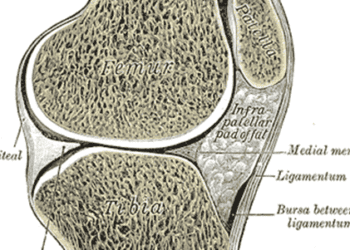Maternal vitamin D status does not affect offspring’s bone-mineral content
[tabs tab1=”2MM Rundown” tab2= “2MM Full Report”]
[tab]
Image: PD
1. Maternal 25(OH)D concentration was not associated with offspring bone-mineral content (BMC) in any trimester of pregnancy.
2. The previously-reported association between ambient ultraviolet B exposure in the third trimester and offspring BMC is likely due to offspring age at the time of of bone density scan (dual-energy x-ray absorptiometry, DXA)
Over the past several decades, research surrounding the association between lower vitamin D concentration in pregnancy and low BMC in offspring has been equivocal. Several small studies do suggest a positive association, leading pregnant women to supplement their diets with vitamin D. This large study was conducted to investigate the proposed association, and to test the hypothesis that the third trimester is a sensitive period for bone mineralization by 25(OH)D. Linear regression of data from 3960 mother-and-offspring pairs demonstrate no association between maternal vitamin D status in pregnancy and offspring BMC later in childhood. The lack of association became most apparent after controlling for offspring age at time of DXA scan, a variable that confounded previous reports because it is linked to maternal exposure to ultraviolet B in the third trimester. With the findings of this study, and the explanation for why previous studies may have found an erroneous association, it is reasonable to conclude that there is no strong evidence that pregnant women should receive vitamin D supplementation to prevent low BMC in their offspring.
Click to read the study in The Lancet
[/tab]
[tab]
Image: PD
1. Maternal 25(OH)D concentration was not associated with offspring bone-mineral content (BMC) in any trimester of pregnancy.
2. The previously-reported association between ambient ultraviolet B exposure in the third trimester and offspring BMC is likely due to offspring age at the time of of dual-energy x-ray absorptiometry (DXA) scan.
This [prospective] study analyzed the measurements of 25(OH)D concentration of 3960 pregnant women and classified them as sufficient, insufficient, and deficient. The dual-energy x-ray absorptiometry (DXA) of the women’s offspring was then measured at age 9-10 years. Linear regression was performed to determine associations between maternal serum 25(OH)D concentration and offspring total body less head and spinal bone-mineral content. Of those studied, 2644 (77%) mothers had sufficient, 1096 (28%) insufficient, and 220 (6%) deficient 25(OH)D concentrations in pregnancy, but offspring total body less head (TBLH) and spinal BMC did not differ among the groups.
In sum: Over the past several decades, research surrounding the association between lower vitamin D concentration in pregnancy and low BMC in offspring has been equivocal. Several small studies do suggest a positive association, leading pregnant women to supplement their diets with vitamin D. This large study was conducted to investigate the proposed association, and to test the hypothesis that the third trimester is a sensitive period for bone mineralization by 25(OH)D. Linear regression of data from 3960 mother-and-offspring pairs demonstrate no association between maternal vitamin D status in pregnancy and offspring BMC later in childhood. The lack of association became most apparent after controlling for offspring age at time of DXA , a variable that confounded previous reports because it is linked to maternal exposure to ultraviolet B in the third trimester. With the findings of this study, and the explanation for why previous studies may have found an erroneous association, it is reasonable to conclude that there is no strong evidence that pregnant women should receive vitamin D supplementation to prevent low BMC in their offspring.
Click to read the study in The Lancet
By Elizabeth Kersten and Andrew Bishara
More from this author: Meta-analysis updates recommendations for C-sections, Shorter telomere length linked with increased risk of common cold, Breastfeeding associated with lower rates of hypertension, Health information technology improves obesity treatment access and screening, Undervaccination becoming more common, associated with increased admission rates
© 2013 2minutemedicine.com. All rights reserved. No works may be reproduced without written consent from 2minutemedicine.com. Disclaimer: We present factual information directly from peer reviewed medical journals. No post should be construed as medical advice and is not intended as such by the authors or by 2minutemedicine.com. PLEASE SEE A HEALTHCARE PROVIDER IN YOUR AREA IF YOU SEEK MEDICAL ADVICE OF ANY SORT. Content is produced in accordance with fair use copyrights solely and strictly for the purpose of teaching, news and criticism. No benefit, monetary or otherwise, is realized by any participants or the owner of this domain.
[/tab]
[/tabs]






